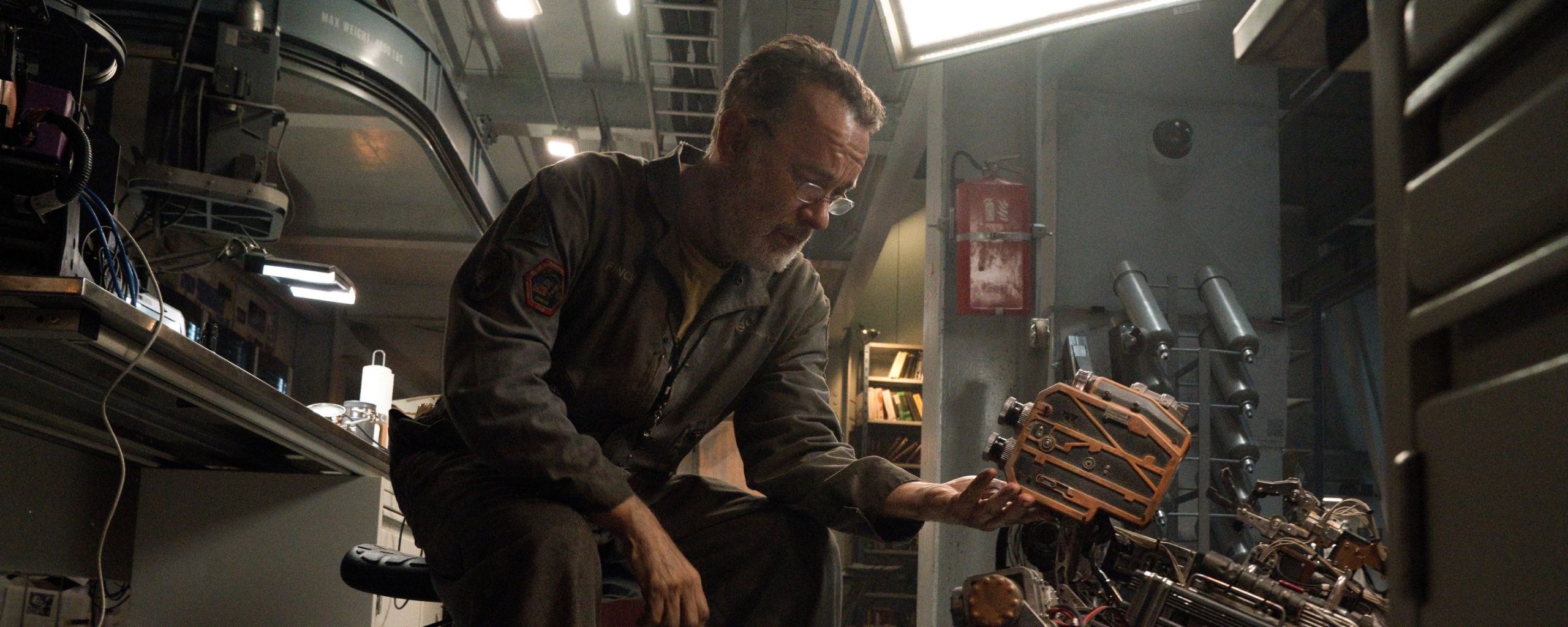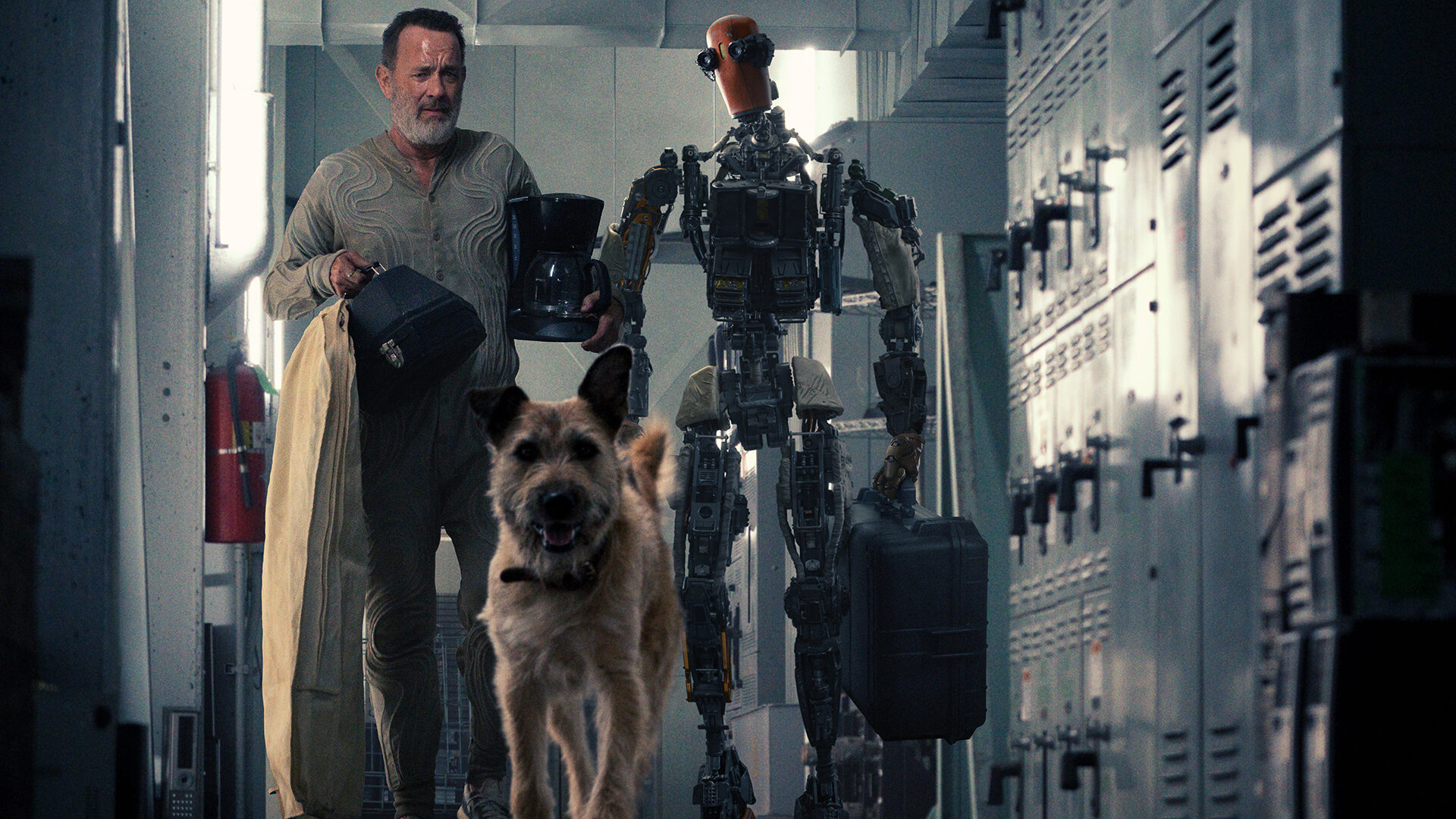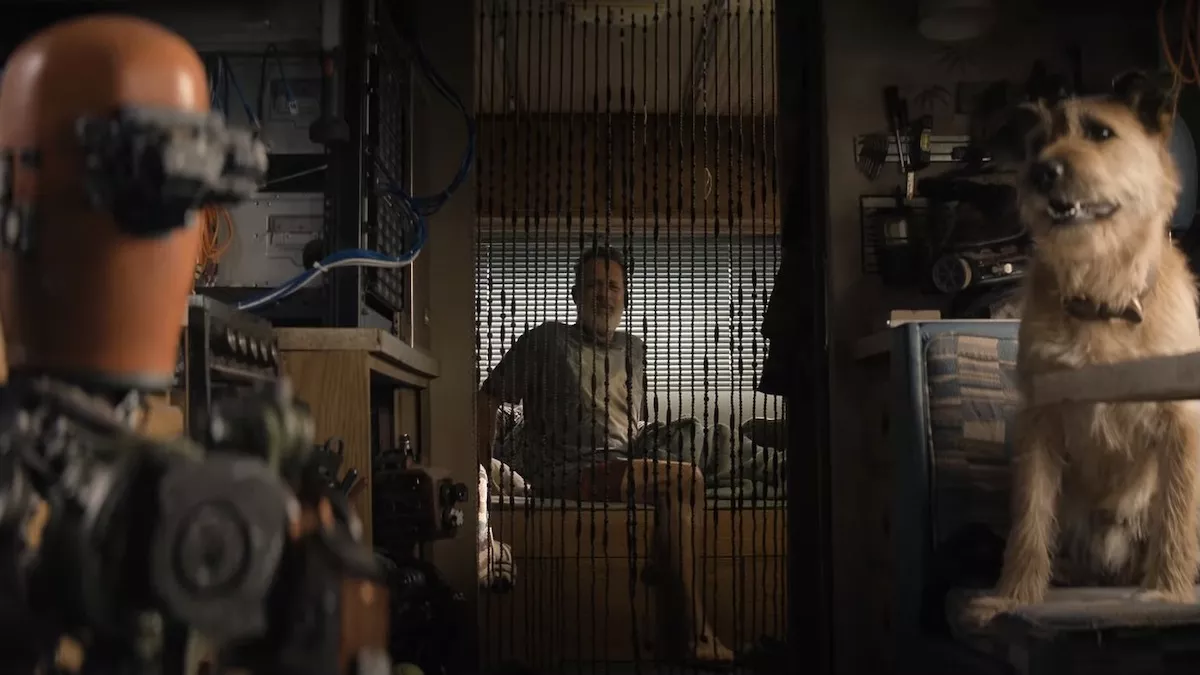The line separating Tom Hanks’ on- and off-screen personas has always been a little murky. That inimitable ability to split the difference between working-class Americana and American exceptionalism has long cemented Hanks as a national treasure. His behind-the-scenes work has also afforded him much of the same reputation–wherever an “important” film is being made, Hanks is surely not too far behind.
“Finch,” a post-apocalyptic road movie from “Game of Thrones” director Miguel Sapochnik, kicks all the goodwill Hanks has banked into overdrive, reminding audiences that, long after the climate crisis consumes us all, he’ll still be here trying to save us. Hanks stars as the titular Finch Weinberg, a jaded scientist who, following a series of climate disasters that led to mass starvation and widespread violence, finds himself holed up in a St. Louis-based laboratory accompanied only by the R2D2-esque Dewey and his beloved dog, Goodyear.
Astronomic levels of UV radiation have rendered the outside world uninhabitable. Even with protective gear, the symptoms of radiation poisoning are taking their toll, and an impending superstorm has only brought Finch’s doomsday clock closer to midnight. In a last-ditch effort to give little Goodyear a chance at survival, Finch cooks up a hyper-intelligent robot (Caleb Landry Jones) to take care of his pup after he’s gone. But Finch’s latest creation, who dubs himself Jeff, has a lot to learn about the world before he’s ready to take care of Goodyear, and an impromptu road trip to San Francisco provides him and Finch the perfect opportunity to bond over what it truly means to be alive.
Presented with all the bravura and whimsy of Spielberg’s golden age, “Finch”–which may as well have been called “Pax Apocalyptica”–might just be the most chipper movie about total annihilation that you’ll see this year. While the film could have (and, perhaps,should have) been a more incisive critique of our distorted ideals surrounding ethical consumption and the climate crisis that will arrive in its wake, it essentially becomes yet another vehicle for ultimate-everyman Hanks to capture our hearts and assure us that everything’s going to be okay, even if it gets tough for a little while. And honestly, that’s perfectly okay, because nearly everything about “Finch” works far better than it warrants.

Still from “Finch” (2021). Courtesy of Apple TV+.
The lead performances from Hanks and Jones, who recorded his motion capture performance entirely on-set, are note-perfect. Although one could make a convincing case that this movie exists solely as a way of securing Hanks’ first Oscar nomination since 2000’s similarly-themed “Cast Away,” the actor’s work here is predictably great and the film’s titular character never feels like anything less than a fully realized human being. But it’s Caleb Landry Jones, a known oddity in the indie scene, who emerges as the real surprise, with a shockingly tender mocap performance that offers viewers the rare pleasure of seeing a character mature in real time. As Finch’s Frankenbot, sporting a magnetic can opener where his heart should be, Jones is a computer-generated revelation.
Working from a screenplay by Craig Luck and Ivor Powell that often feels algorithmically designed for broad appeal, director Sapochnik has more than enough legroom to make his own way through the story. “Finch” benefits from an ongoing dichotomy that contrasts the gentle intimacy of the characters with the impossibly high stakes of its premise, and Sapochnik’s direction rarely misses an opportunity to give the ordinariness of life a kind of humble grandiosity that’s undeniably affecting. A game of catch between Finch, Jeff, and Goodyear isn’t just a game of catch; it’s one generation passing their torch to the next in a losing battle against the elements. A close-up of Goodyear’s tennis ball isn’t just a look at his favorite toy; it’s a stand-in for the entire planet and our duty to protect it.
Sapochnik’s humanistic flourishes often make up for an otherwise unsurprising experience, one that’s refreshingly light on conflict and functions more as a big budget meditation on our collective ability to do better. The film’s commitment to hope is laudable, especially after learning that an entirely different third act featuring Samira Wiley and Skeet Ulrich was cut from the film in order to maintain its upbeat tone. Originally titled “BIOS,” the film underwent major changes during the COVID-19 pandemic, allowing Sapochnik to reconsider his vision and focus on what makes the story unique–its unwavering optimism. The result will undoubtedly frustrate those looking for the kind of grit begged by its premise, but “Finch” is that elusive beast, which many consider extinct, and one that we desperately need more of: genuine movie magic.
Grade: B+










